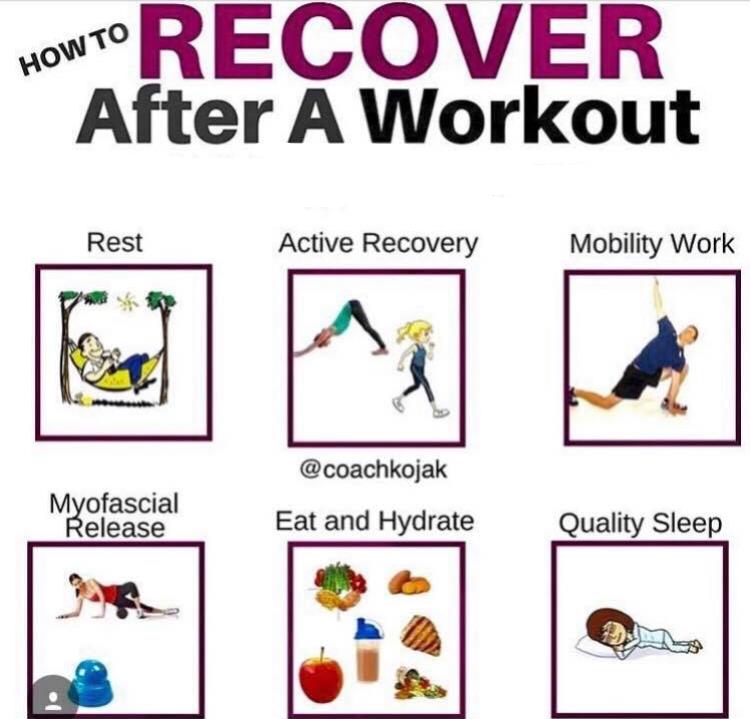I have always been an advocate for pushing my limits when it comes to workouts and physical activity. There is something incredibly empowering about challenging yourself and seeing how far you can push your body. However, as much as I love the thrill of an intense workout, I have also come to recognize the importance of recovery in my fitness journey. It took me some time to learn this lesson, but once I did, it completely transformed my approach to fitness.
In the early days of my fitness journey, I would go all out during every workout, giving it my all without any thought of recovery. I would push myself to the point of exhaustion and then wonder why I was constantly fatigued and sore. It wasn’t until I started experiencing a lack of progress in my fitness goals that I realized the importance of recovery.
Recovery is the key to allowing your body to repair and adapt to the stress of intense workouts. It is during this time that your muscles rebuild and become stronger than before. Without proper recovery, you run the risk of overtraining, which can lead to decreased performance, increased risk of injury, and even burnout.
One of the first recovery strategies I implemented was incorporating rest days into my weekly workout schedule. I used to feel guilty about taking a day off from exercise, thinking that I was being lazy or not working hard enough. However, I soon realized that rest days were actually giving my body the time it needed to recover and recharge.
On rest days, I would focus on gentle activities such as stretching, yoga, or leisurely walks. These activities helped to improve blood circulation, loosen tight muscles, and promote relaxation. Not only did I feel physically better, but I also noticed that my mental clarity and focus improved as well. Taking the time to rest and recharge allowed me to come back to my workouts with renewed energy and motivation.
Another crucial aspect of my recovery strategy was prioritizing sleep. In the past, I would sacrifice sleep to fit in a late-night workout or a few extra hours of productivity. However, I soon realized that sleep deprivation was hindering my progress. Sleep is when your body undergoes essential repair and regeneration. It is the time when your muscles recover, and your hormones balance out. I started prioritizing a consistent sleep schedule, aiming for at least 7-8 hours of quality sleep each night. The difference it made in my recovery and overall well-being was remarkable.
Additionally, I learned the importance of proper nutrition in my recovery process. Fueling my body with nutrient-rich foods helped to replenish glycogen stores, repair damaged tissues, and support muscle growth. I started incorporating more lean proteins, complex carbohydrates, and healthy fats into my diet. I also made sure to eat a balanced meal within the first hour after a workout to assist in muscle recovery.
Apart from nutrition, I also discovered the benefits of incorporating recovery modalities into my routine. These included activities such as foam rolling, stretching, and massage therapy. Foam rolling, in particular, became my best friend. It helped to release tension, increase flexibility, and alleviate muscle soreness. By dedicating just a few minutes each day to foam rolling, I was able to prevent muscle imbalances and optimize my recovery process.
As I became more knowledgeable about recovery strategies, I also learned to listen to my body. I started paying attention to cues such as fatigue, soreness, and decreased performance. If my body needed a break or if I sensed an injury coming on, I would adjust my workout accordingly. I realized that pushing through pain or ignoring warning signs would only lead to setbacks in the long run.
Recovery is not a one-size-fits-all approach. Each person’s body is unique, and therefore, their recovery needs may differ. It is essential to experiment with different strategies and find what works best for you. Be patient and kind to yourself throughout the process. Remember that progress is not just measured by how hard you work, but also by how well you recover.
In conclusion, recovery is an integral part of any fitness journey. In order to see progress and avoid burnout, it is crucial to prioritize rest, sleep, nutrition, and other recovery strategies. By taking the time to care for your body, you will not only improve your physical performance but also your overall well-being. So, challenge yourself, push your limits, but always remember to give your body the time and care it needs to heal and become even stronger.
